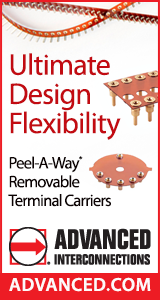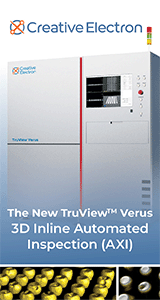|

|
|
|
||||||||
Concerns with Flux During Vapor Phase Reflow
Board Talk
|
||||||||
TranscriptPhil We have an interesting question today about reflow and vapor phase from B.K. B.K. says, "In a vapor phase system, is there an issue with condensing fluids, removing flux from the items to be soldered." He's saying that vapor degreasers are very similar. Who still has vapor degreaser? You don't see those very often. Anyway, they work really well at removing anything that was soluble in the fluid. I can't think of a better expert anywhere on vapor phase than our one and only, W. James Hall, known affectionately as Jim Hall. Jim That means they will not dissolve anything. Remember dissolution is basically a chemical reaction of a sort, and so, the answer is "no." These fluids will condense on the boards. They will flow over the solder paste and they will not remove any of the flux. So there is no need to use a special flux. There have never been, to the best of my knowledge, any special fluxes that were formulated specifically for vapor phase. Perhaps, for a special temperature profiling issue, but even then, I've never known of a specific paste formulated for vapor phase. One of the inherent advantages that you get as part of the process is this chemically inert fluid that doesn't damage or interact chemically with anything on the board. Phil Jim So in any vapor phase system, you need to have some sort of filtration. Any good vapor phase system should have a filtration system to remove this flux that is physically washed into the liquid sump. This flux removal is happening during the warm-up process, and it will not in any way, negatively impact the wetting. Phil Jim Phil Jim Phil |
||||||||
Comments
|
||||||||
|
|

|




